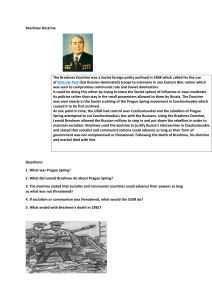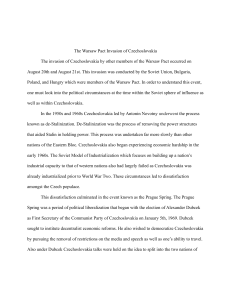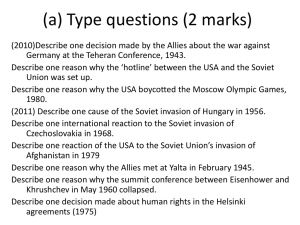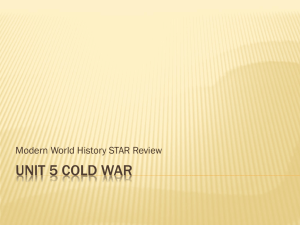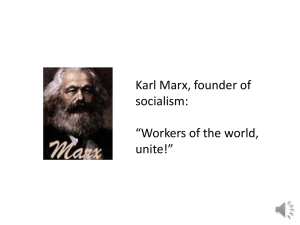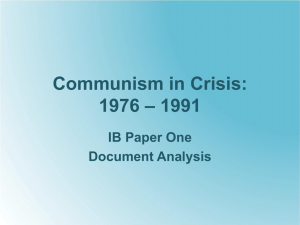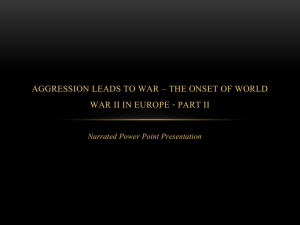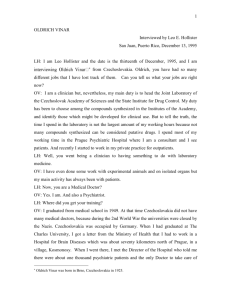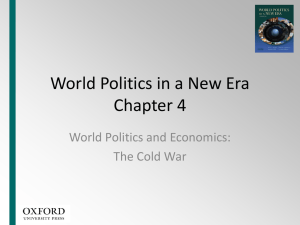How did the USSR respond to opposition in Eastern Europe?
advertisement
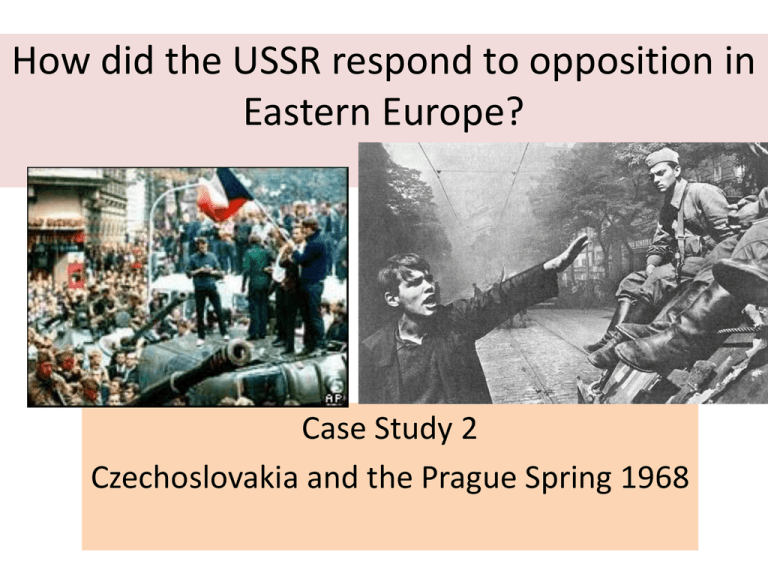
How did the USSR respond to opposition in Eastern Europe? Case Study 2 Czechoslovakia and the Prague Spring 1968 Why was there opposition in Czechoslovakia? • USSR leader Khrushchev had been replaced by Leonid Brezhnev. • In Czechoslovakia the old Stalinist leader had been forced to resign. Replaced by Alexander Dubcek who promoted ‘socialism with a human face’ – less censorship, more freedom of speech and a reduction of the activities of the secret police. • He was a Communist but did not believe it had to be as restrictive as it had been. • He learned lessons of Hungarian Uprising and reassured Brezhnev that he would not leave the Warsaw Pact or the Comecon. • Relaxed laws on censorship led to ‘The Prague Spring’ as intellectuals criticised Communist government ministers on live television and radio. • By the summer even more radical ideas growing – even talk of setting up a new part, the Social Democratic Party to rival the Communist Party. How did the USSR respond to Czechoslovakia in 1968? • http://www.youtube.com/watch?v=-XgxLgnpRYw&feature=related Use the information at the bottom of page 132 and 133 to answer the following questions; 1. Why were the Soviets worried about the changes going on in Czechoslovakia? 2. Who put Brezhnev under pressure to restrain reform in Czechoslovakia? 3. What methods did the USSR try in response to the changes in Czechoslovakia? 4. What happened in July 1968? What was the outcome? 5. What happened on 20th August 1968? 6. Despite Dubcek ‘s apparent loyalty to the USSR and the Warsaw Pact, why do you think Brezhnev responded the way he did? Explain your answer. What is the message of this source? Street cartoon in Prague How did the USSR respond to Czechoslovakia in 1968? • Read sources 19 and 21 on page 133. • Explain how and why these sources differ in their interpretation of the Soviet intervention. What was the Brezhnev Doctrine? A policy promoted by Soviet leader Leonid Brezhnev that asserted that the Soviet Union had the right to use military force to maintain the strict rule of the Communist Party in nearby socialist countries. The Brezhnev Doctrine was used to justify the invasion of Czechoslovakia in 1968 after Alexander Dubček introduced political reforms there. The policy was maintained through 1989. 1. How did the Brezhnev Doctrine define Communism? 2. How was Dubcek treated after The Prague Spring? 3. How did the Soviet affect the mood of Czechoslovakia? How similar were the events in Hungary in 1956 and in Czechoslovakia in 1968?
